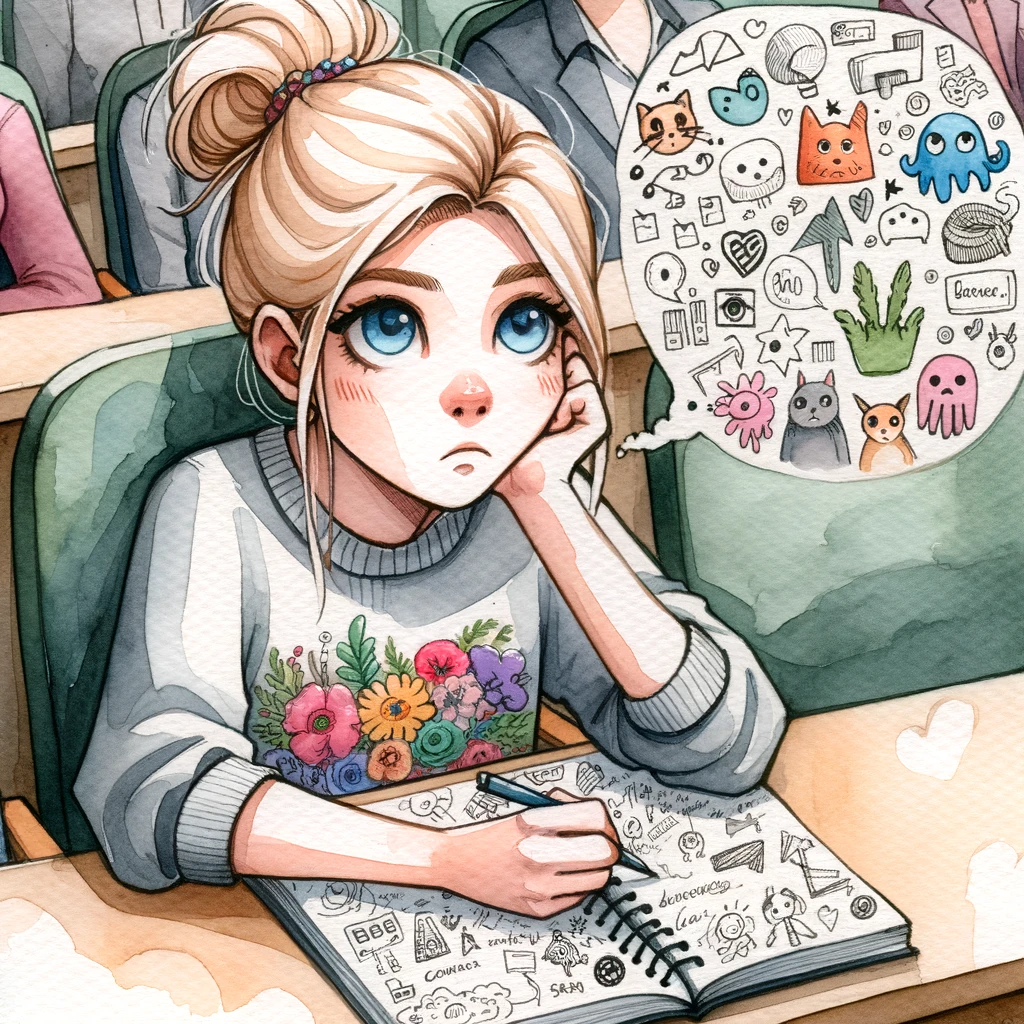Bored
Definition
Bored is an adjective that describes a state of feeling uninterested, tired, or restless due to a lack of stimulation or engagement.
Parts of Speech
- Adjective
Pronunciation
American English
- IPA Pronunciation: /bɔrd/
- Respelling: bawrd
British English
- IPA Pronunciation: /bɔːd/
- Respelling: bawd
The pronunciation of "bored" is similar in both American and British English, with slight differences in the vowel sound.
Etymology
The word "bored" is derived from the verb "bore," which originally meant "to make a hole." In the early 18th century, "bore" took on a figurative meaning, describing someone or something that is tiresome or tedious. This evolved into the adjective "bored," describing a feeling of dissatisfaction due to monotony.
Derivatives
- Boring (adjective)
- Boredom (noun)
- Bore (verb)
- Unbored (adjective)
- Boringly (adverb)
Synonyms
- Uninterested
- Weary
- Disengaged
Antonyms
- Engaged
- Interested
- Excited
Usage
The term "bored" is commonly used to describe a state of disinterest or lack of excitement, as in "He felt bored during the lecture." It is often associated with routine or uninteresting tasks or environments.
Related Terms
- Monotony: The quality of being repetitive or unvarying, often leading to boredom.
- Disinterest: Lack of interest or engagement.
- Apathy: A state of indifference or lack of enthusiasm.
Detailed Definitions
Adjective
- Feeling uninterested or restless due to a lack of stimulation: Used to describe a person’s reaction to monotonous or unstimulating surroundings.
- Example: "She was bored with the routine of her job."
- Lacking engagement or enthusiasm: Often describes a state of disinterest in ongoing events or activities.
- Example: "He looked bored while listening to the speech."
bored



🇨🇳 Mandarin (Simplified Chinese)
- 无聊 (wúliáo)
- IPA Pronunciation: /wu˧˥.ljau˧˥/
- Respelling: wú-liáo
🇮🇳 Hindi
- उबाऊ (ubāū)
- IPA Pronunciation: /ʊ.baː.ʊ/
- Respelling: ubaau
🇪🇸 Spanish
- Aburrido (referring to a person being bored)
- IPA Pronunciation: /a.buˈri.ðo/
- Respelling: ah-boo-REE-dho
🇫🇷 French
- Ennuyé
- IPA Pronunciation: /ɑ̃.nɥi.je/
- Respelling: ahn-nwee-yay
🇸🇦 Modern Standard Arabic
- مملّ (maml)
- IPA Pronunciation: /mam.lː/
- Respelling: maml
🇧🇩 Bengali
- উবেলা (ubēlā)
- IPA Pronunciation: /ubela/
- Respelling: ubela
🇷🇺 Russian
- Скучающий (skuchayushchiy)
- IPA Pronunciation: /skuˈt͡ɕajʊɕːɨj/
- Respelling: skoo-CHAI-yoo-shchiy
🇵🇹 Portuguese
- Entediado
- IPA Pronunciation: /ẽ.te.ˈd͡ʒja.ðu/
- Respelling: en-teh-DYAH-doo
🇮🇩 Indonesian
- Bosan
- IPA Pronunciation: /bo.san/
- Respelling: bo-san
🇩🇪 German
- Gelangweilt
- IPA Pronunciation: /ɡəˈlaŋvaɪlt/
- Respelling: guh-LANG-vylt
🇯🇵 Japanese
- 退屈な (taikutsu na)
- IPA Pronunciation: /taɪ.kʊ.tsu na/
- Respelling: tai-kutsu na
🇻🇳 Vietnamese
- Chán
- IPA Pronunciation: /ʈʂaːn˧/
- Respelling: chan
🇰🇷 Korean
- 지루한 (jiruhan)
- IPA Pronunciation: /t͡ɕi.ɾu.han/
- Respelling: ji-roo-han
🇹🇷 Turkish
- Sıkılmış
- IPA Pronunciation: /sɯkɯlˈmɯʃ/
- Respelling: suh-KUHL-muhsh
🇵🇰 Urdu
- بیزار (bēzār)
- IPA Pronunciation: /beː.zɑːr/
- Respelling: bey-zaar





